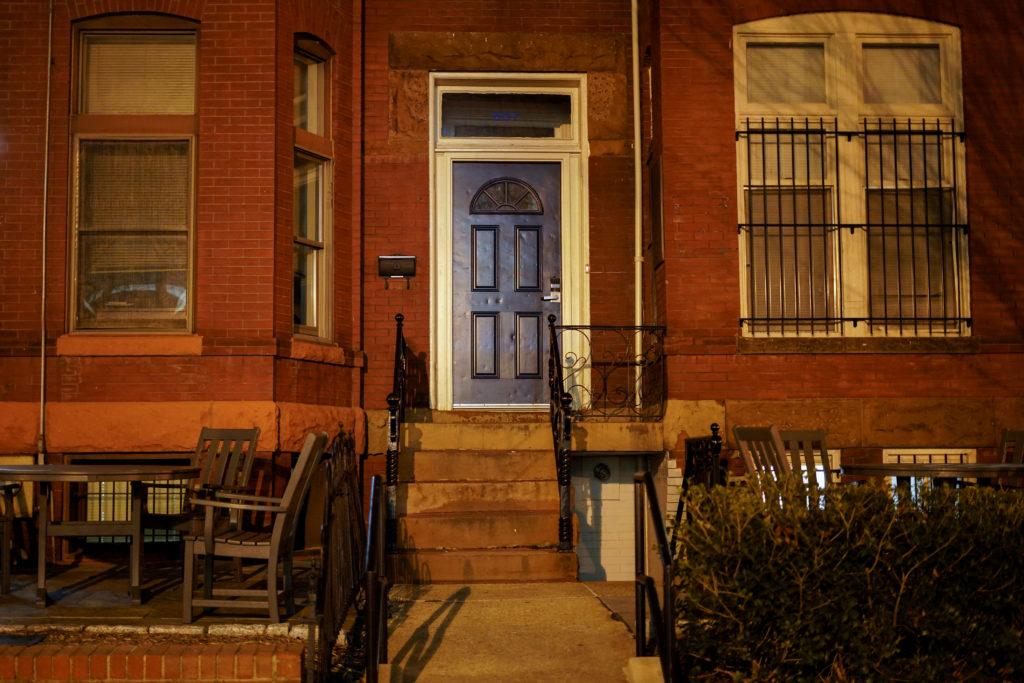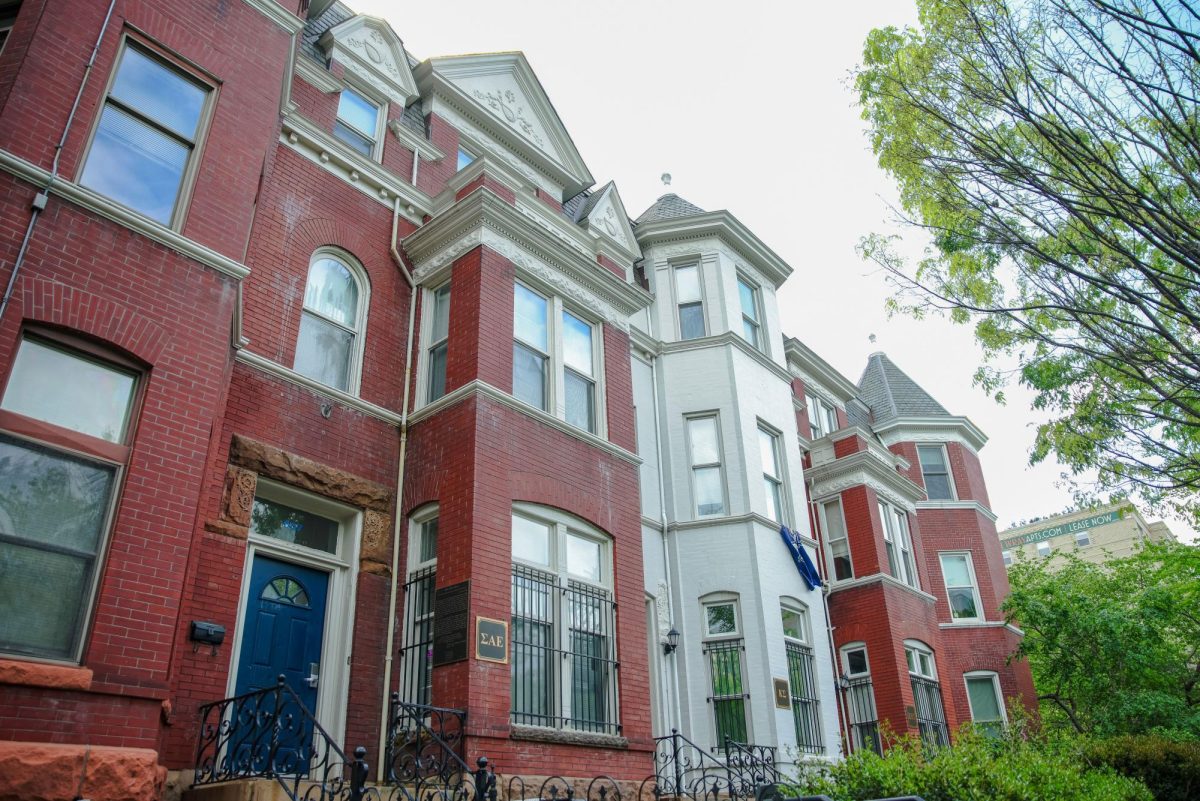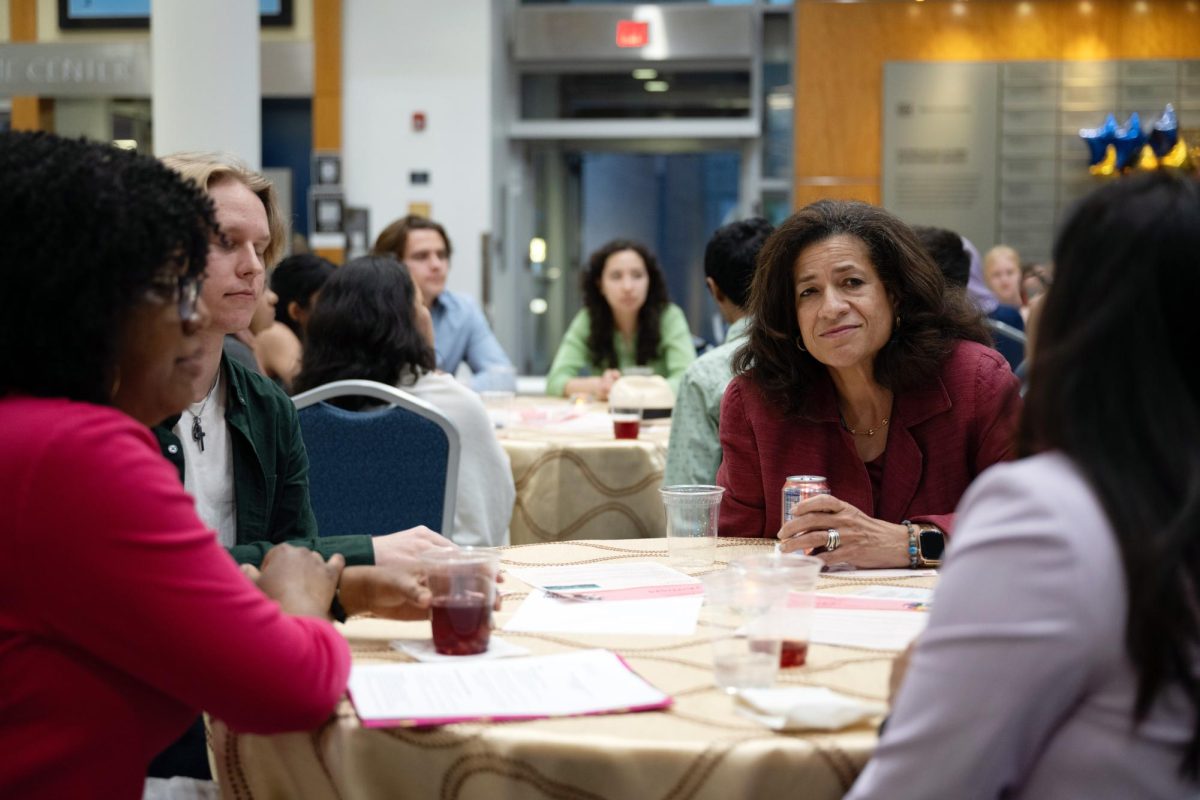Greek life experts said Pi Kappa Alpha’s decision to dissolve, which resulted in a suspension last week, was likely made to avoid disciplinary action.
Justin Buck, the executive vice president and CEO of Pi Kappa Alpha, notified the GW chapter president Tuesday that the fraternity had been kicked off campus. Colette Coleman, the assistant dean of students, said the fraternity’s headquarters notified officials earlier this month that GW’s chapter “voluntarily” relinquished its charter, but she and IFC leaders declined to say why the chapter dissolved.
“Effective immediately, the GW Delta Alpha chapter will no longer be eligible to receive benefits associated with being a registered GW student organization and cannot participate in recruitment practices,” she said in an email.
Coleman said Division of Student Affairs staff and former chapter leaders are “in talks” with Pi Kappa Alpha headquarters about “next steps” for individual chapter members. She declined to say whether the University was involved in the chapter’s decision to dissolve.
She said the University has offered former members “resources and support,” like relocating students to other on-campus housing for the semester.
“We support the decision that the Delta Alpha’s student leadership made in consultation with their headquarters,” she said.
Megan Nelson, the senior director of marketing and communications for Pi Kappa Alpha’s international chapter, said last week that the organization placed GW’s chapter on suspension after the chapter surrendered its charter. Nelson declined to comment further.
Robbie Santamorena, the former president of GW Pi Kappa Alpha, declined to comment. Henry Auslin, the chapter president who was slated to take over this spring, also declined to comment.
Interfraternity Council President Seamus Cullen did not return requests for comment, and eight of Pi Kappa Alpha’s 2019 executive board members listed on the GW chapter’s website did not return requests for comment.
The fraternity was investigated in October 2016, shortly before coming off social probation for a “previous violation,” and shut down for a month for posing health and safety risks to new members.
Todd Shelton, the chief communication chair for the North American Interfraternity Conference, declined to comment, deferring an interview request to the Pi Kappa Alpha fraternity because the decision to suspend the chapter was “internal.” He said “lots of options” exist for students participating in GW’s IFC recruitment – which will run from Jan. 27 to Feb. 8 – who are looking for “a positive fraternal experience.”
Greek life experts and IFC advisers said fraternities typically relinquish their charters when the chapter is facing disciplinary action for violating student safety or no longer wants to comply with its headquarters’ regulations.
Pi Kappa Alpha’s chapter at Southern Methodist University was suspended in 2018 after the school conducted an investigation into hazing, like requiring new members to eat onions and eggs. The organization’s headquarters suspended the University of Massachusetts Amherst chapter in 2018 after the chapter was indicted over alleged hazing.
Matthew Richardson, the director of the Office of Fraternity and Sorority Life at West Virginia University, said he cannot speak to why GW’s chapter renounced its charter but said that chapters often dissolve when membership is low. He said a chapter may not have followed “directives” from the international organization and no longer wants to associate with the organization.
“Basically, in our work in the Greek world, when the chapter voluntarily surrenders their charter to the international organization, typically it’s not the same as them being closed for disciplinary reasons,” Richardson said.
He said the umbrella organization generally waits until all former members have graduated before allowing a chapter to return to campus. But determining conduct or “due process” for members can be difficult because fraternities are private organizations that might not publicize internal disciplinary processes, Richardson said.
Richardson added that an organization or a school typically suspends a chapter if it poses disciplinary or student health and safety concerns or is in debt to the international organization. He said Pi Kappa Alpha’s headquarters have been “very consistent in taking action” against chapters that violate the organization’s values during his time working in Greek life at different schools.
“That really should be applauded because a lot of times people aren’t considering that, if they don’t have a chapter there, they don’t have membership income coming in – it’s a loss of income,” he said. “And that’s why a lot of groups, you don’t really see them go in, or if they are being dismissed from the campus for whatever reason, there’s usually a lot of pushback. It’s a business, and there’s money involved.”
Hunter Guarnera, the assistant director of student life and the IFC adviser at the University of Oklahoma, said chapters most often relinquish a charter if membership numbers are dwindling.
He added that chapters might surrender their charters if they disagree with any disciplinary action taken against them or if a chapter believes their actions did not warrant a sanction.
“Nationally, we have started to see groups relinquish their charter in an effort to operate independent of any overseeing or governing body,” he said in an email. “This is not super common and generally is done in retaliation to sanctions or discipline from an (inter)national organization.”
Guarnera said students interested in bringing a chapter back to campus must work closely with their school and a fraternity’s headquarters.
Tau Kappa Epsilon returned to campus in January 2018 after shutting down in 2015. The chapter was temporarily suspended in 2014 after a marijuana arrest.
Guarnera said following a university’s policy for chartering a chapter is “paramount” to successfully bringing a chapter back to campus.
“If a chapter has been suspended by the university for five years, for example, surrendering the charter and trying to reorganize two years later won’t work from the university side,” he said. “Additionally, if alumni, HQ and students aren’t interested in the chapter coming back, the process likely won’t get off the ground.”







